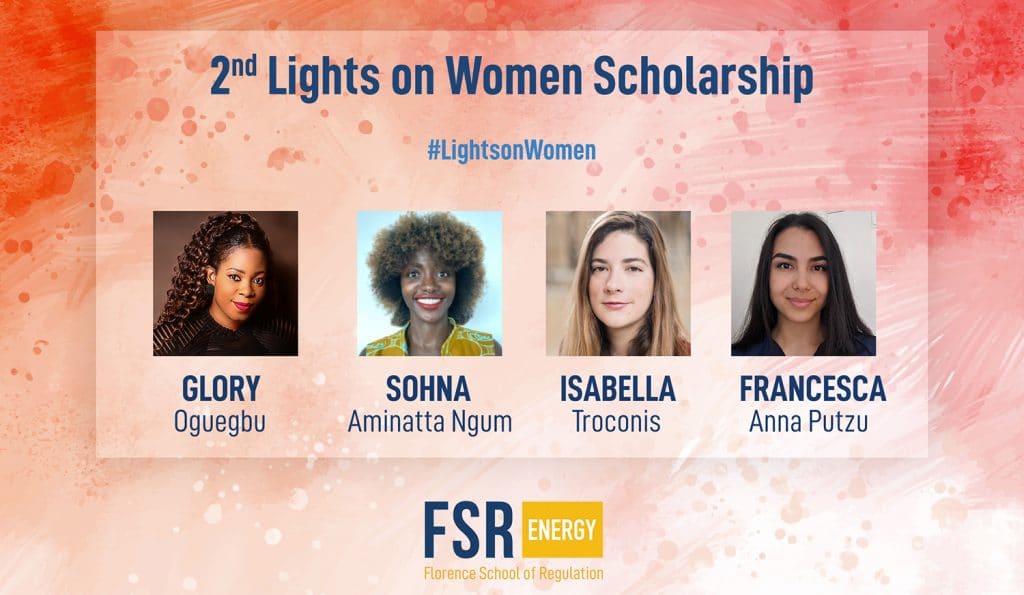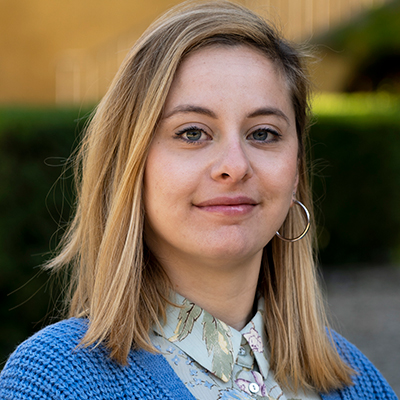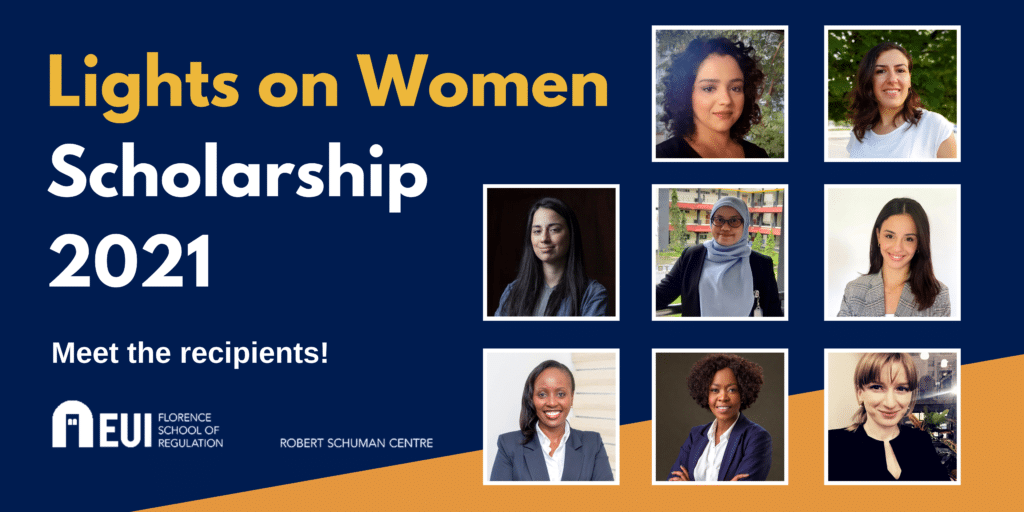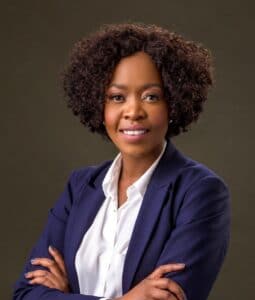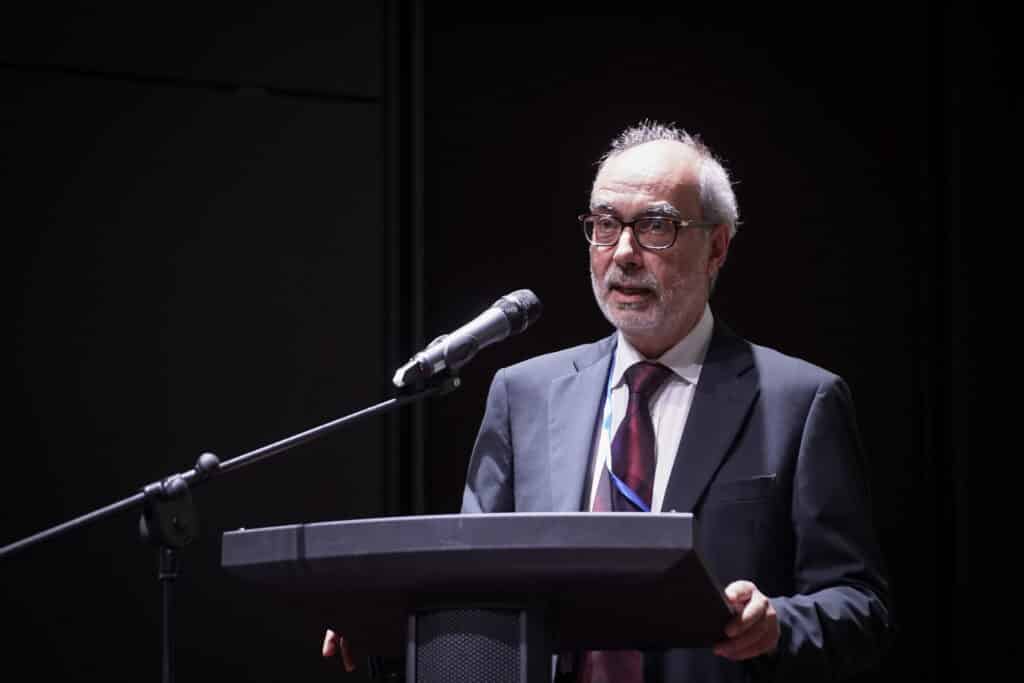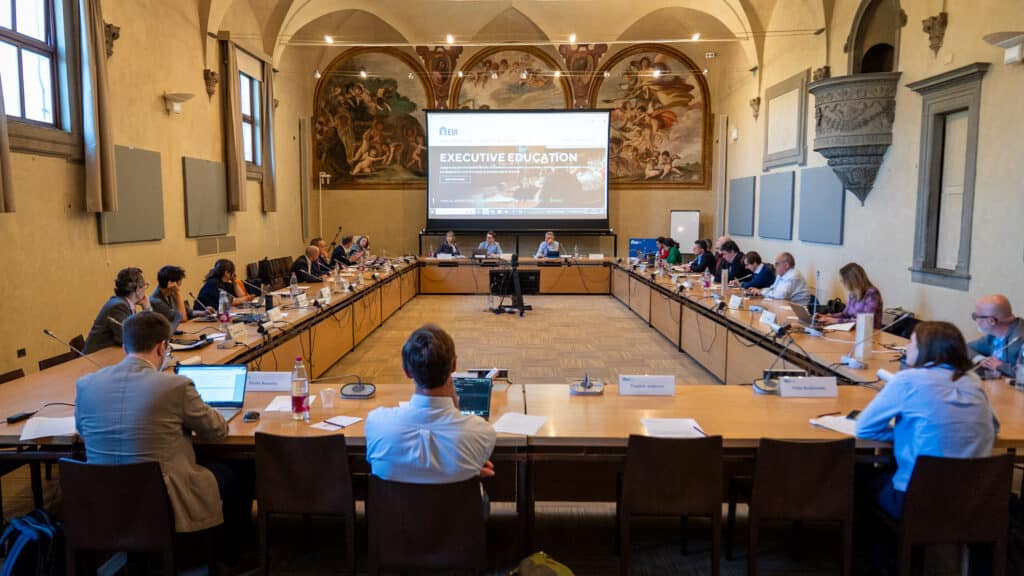3rd Lights on women scholarship: meet the recipients!
Amanda Tavares, Daniela Soberón, Hasmina Tari Mokui, Kaltrina Humolii, Louise Mathu, Meltem Peker Sarhan, Thokozile Zambane, Tutana Kvaratskhelia, are the recipients of the 2021 Lights on Women scholarship.
It’s that time of the year again! For the 3rd year in a row, the FSR is proud to announce the winners of the latest edition of the Lights on Women Scholarship.
Amanda Tavares, Daniela Soberón, Hasmina Tari Mokui, Kaltrina Humolii, Louise Mathu, Meltem Peker Sarhan, Thokozile Zambane, Tutana Kvaratskhelia are the recipients of the scholarships, which will grant them each a free seat to one of the FSR community courses.
The Lights on women scholarship was first launched in 2019 to provide its recipients with visibility, networking opportunities and technical training needed to advance their careers. This year the FSR doubled its commitment towards the cause, providing eight scholarships to women contributing to innovative solutions, research, and initiatives that accelerate a sustainable, diverse, resilient, and just energy transition.
The Lights on Women scholarship is based first and foremost on the principle that education is a key factor in an individual’s personal and professional growth. And that everyone should have equal access to it, irrespectively of one’s gender, race or class. Today more than ever, the FSR is committed to breaking down barriers to education with gender equality and inclusivity as an underlying principle of its action.
Over the years we have achieved far more than we had hoped. We have met a number of outstanding candidates, we have established life-long relationships with our applicants, we have tapped into their communities and past experiences, we have shed a light on their life and career stories, and ultimately we have moved one step closer to shattering the glass ceiling.
Without further ado, here are the names and bios of our eight 2021 winners, a pool of talented women who are undoubtedly set to leave a mark in the energy, climate and sustainability sectors.
Amanda Tavares
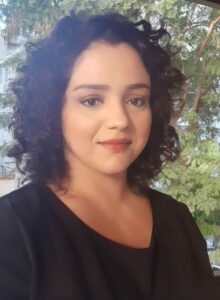 Amanda Tavares holds a master’s degree in Public Policy from UFRJ in Brazil (Universidade Federal do Rio de Janeiro) and a Bachelor’s Degree in International Relations from the Pontifical Catholic University of Rio de Janeiro, also in Brazil.
Amanda Tavares holds a master’s degree in Public Policy from UFRJ in Brazil (Universidade Federal do Rio de Janeiro) and a Bachelor’s Degree in International Relations from the Pontifical Catholic University of Rio de Janeiro, also in Brazil.
Currently, Amanda is a Ph.D. candidate in Economics from UFF in Brazil (Universidade Federal Fluminense). Her thesis research is about regulatory models of gas transmission and underground storage.
Amanda is also a researcher in GENER (Grupo de Economia e Regulação), her research activities include natural gas and renewable energy diffusion and its socio-economic outcomes.
She believes the FSR course “EU Gas Network Codes” will certainly contribute to her research and help her get closer to her goals of being an energetic participant in the sector, capable of delivering innovative ideas on regulatory change strategies. About the scholarship, she commented:
“The Lights on Women Scholarship is a wonderful opportunity to contribute to my research and build on my technical knowledge and career with great professors and peers, and I am extremely proud to join in. More than ever, I feel inspired and motivated to work hard to achieve my goals while contributing to a better and more gender-diverse energy sector.”
Daniela Soberón
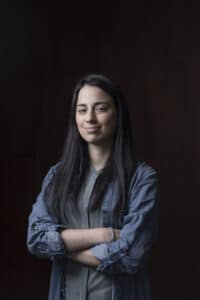 Daniela Soberón is a Peruvian lawyer. She feels strongly about climate justice and stands in solidarity with the new generations who will suffer the consequences of the climate crisis. Since 2019, she has been working for the Peruvian national think tank, Climate Policy Institute (CPI), as the Executive Director and as an Associated Researcher.
Daniela Soberón is a Peruvian lawyer. She feels strongly about climate justice and stands in solidarity with the new generations who will suffer the consequences of the climate crisis. Since 2019, she has been working for the Peruvian national think tank, Climate Policy Institute (CPI), as the Executive Director and as an Associated Researcher.
Her main tasks were to support literature review and background research especially focused on the energy transition. At the beginning of the pandemic, her research widened, to include climate justice. About the connection between climate change and the inequality gap in Peru she says:
“The energy transition will not only bring about greater energy security but also better access to clean energy for remote, disadvantaged communities. With renewables as the principal energy source, Peru could achieve justice and equity for its population. I want to be part of this transformation and reach climate justice for all.”
And about the role of women in the transition:
“Peru still has little female participation in positions of power and public decision-making. This gender gap represents a barrier to including a female perspective when developing solutions to collective problems. In environmental and climate matters, this is especially relevant, since women are even more vulnerable to the impacts of climate change. For this reason, I believe that the wealth of knowledge that the FSR courses can equip me with is instrumental to be an agent of change.”
Hasmina Tari Mokui
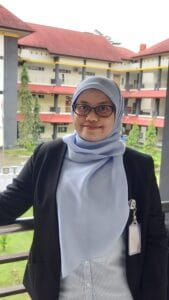 Hasmina Tari Mokui is a lecturer at Halu Oleo University, Indonesia. She holds a Bachelor Degree in Electrical Engineering at Hasanuddin University, Makassar, Indonesia and a Master of Engineering (Electrical) at the University of Queensland, Brisbane, Australia. She also completed her PhD on a scholarship from AusAID to continue studying Electrical and Computer Engineering at Curtin University, Perth, Australia. Since 2011 she has been volunteering as the IEEE PES Day 2021 Programme (Ambassador for Indonesia Section) and has been a member of IEEE PES Young Professional Events & Conferences Subcommittee. For the IEEE she organizes events and shares knowledge on renewables and green energy.
Hasmina Tari Mokui is a lecturer at Halu Oleo University, Indonesia. She holds a Bachelor Degree in Electrical Engineering at Hasanuddin University, Makassar, Indonesia and a Master of Engineering (Electrical) at the University of Queensland, Brisbane, Australia. She also completed her PhD on a scholarship from AusAID to continue studying Electrical and Computer Engineering at Curtin University, Perth, Australia. Since 2011 she has been volunteering as the IEEE PES Day 2021 Programme (Ambassador for Indonesia Section) and has been a member of IEEE PES Young Professional Events & Conferences Subcommittee. For the IEEE she organizes events and shares knowledge on renewables and green energy.
“Indonesia has put in place actions to achieving Sustainable Development Goal (SDGs) 7 at the village level. Because of my interest and desire to help, I have been gathering knowledge about affordable and clean energy through my classes, research as well my community service.
Having worked in the field, I understand that energy scarcity can lead to poverty and ignorance. Instead, better access to affordable and sustainable energy can help to improve society’s well-being, particularly for women. By attending the course on Regulation for Sustainable Development Goal 7, I believe that I can give a larger contribution to support the achievement of SDGs at the community level in Indonesia.”
Kaltrina Humolii
 Kaltrina Humolii works as a compliance specialist at the Kosovo Energy Distribution Services (KEDS), the sole distribution company in Kosovo. She holds an LL. B and LL.M degree in Law from the University of Pristina (Kosovo).
Kaltrina Humolii works as a compliance specialist at the Kosovo Energy Distribution Services (KEDS), the sole distribution company in Kosovo. She holds an LL. B and LL.M degree in Law from the University of Pristina (Kosovo).
She has previously interned at the Energy Regulatory Office in Kosovo, an independent body regulating activities in the energy sector in Kosovo, where she familiarized herself with a range of energy policy-related topics.
Because of her background, she is eager to learn about the most recent advancements in the EU energy and climate regulation through the FSR European Green Deal course. About the scholarship she said:
“For women to strengthen their role in the energy sector and policy-making, it is necessary that we are provided with equal access to training, mentoring and networking opportunities. Lights on Women is a great opportunity for my future career to improve and potentially initiate new policies in my country and overall develop my skills and advance my knowledge.”
Louise Mathu
 Louise Mathu is a lawyer specialised in energy and extractives, climate change, public-private partnerships and project finance. Her interest in renewables, in particular, was sparked after working on several significant renewable energy power generation projects as a commercial legal counsel at Kenya’s main power distribution company.
Louise Mathu is a lawyer specialised in energy and extractives, climate change, public-private partnerships and project finance. Her interest in renewables, in particular, was sparked after working on several significant renewable energy power generation projects as a commercial legal counsel at Kenya’s main power distribution company.
Participating in the negotiation and design of power infrastructure projects, at the regional level, with power utilities in Kenya’s neighbouring countries of Uganda, Rwanda, Ethiopia and Tanzania, further expanded her understanding of the importance of regional power interconnections. She also collaborated with the World Bank, African Development Bank (AfDB), French Development Agency (AfD) and the European Investment Bank (EIB) and is currently a lead consultant at Gennis Consulting focussing on advisory, research and capacity building in policy and regulation.
Louise has a Bachelor of Laws (LLB) Degree and Master of Laws (LLM) in International Trade & Investments Law, both from the University of Nairobi, Kenya.
With the FSR course on Regulatory Delivery, she intends to learn more on regulatory and governance modelsand to interact and share insights with professionals from different countries:
‘The Kenyan and wider African regulatory and policy landscape is rapidly evolving with the greater focus now being placed on climate change issues and the energy transition. I’m delighted to receive The Lights on Women Scholarship: with the added knowledge that I’ll gather from it, I look forward to making a greater contribution to these very important conversations.’
Meltem Peker Sarhan
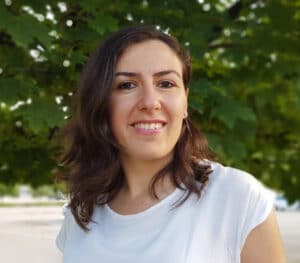 Meltem Peker Sarhan holds a Ph.D. degree from the Department of Industrial Engineering, Bilkent University, Turkey, and is now a research associate of Power and Energy Systems at Newcastle University, UK.
Meltem Peker Sarhan holds a Ph.D. degree from the Department of Industrial Engineering, Bilkent University, Turkey, and is now a research associate of Power and Energy Systems at Newcastle University, UK.
In acknowledgement of her research in energy and power systems, she was nominated as one of YoungWomen4OR (2020), an initiative of WISDOM, a sub-group of the Association of European Operational Research Societies (EURO).
Meltem is fascinated by challenges related to future energy and power systems, as the systems will become more complex with the increase in renewable sources and the introduction of more smart grid solutions.
She believes that: “In order to achieve the ambitious targets of net-zero, there is an ever-growing need to analyse technical and economic perspectives of different market designs and come up with new strategies for future-world scenarios.
The Evolution of Electricity Markets in Europe online course will enhance my technical knowledge on the power sector and will provide innovative perspectives while analysing existing and new market designs.”
Thokozile Zambane
Thokozile Zambane is an attorney and infrastructure development professional from South Africa and has worked in the energy sector for over 10 years in various roles, as a project finance lawyer, project developer, facilitator, and investor.
She has significant transactional experience and regularly facilitates training for the appraisal and financing of large-scale energy projects with the Association of African Development Finance Institutions. She is also developing a programme to assist entrepreneurs build sustainable businesses that can participate in the clean energy value chain.
Thokozile is currently the COO of Bayakha Infrastructure Partners, a licensed infrastructure fund manager with a mandate to make equity investments in energy, water, transport and ICT infrastructure projects across Sub-Saharan Africa, with a bias towards clean energy projects. She is also a Power Africa/YALI Women in African Power Programme alumna and a Mandela Washington Fellow.
With a passion for socio-economic development, Thokozile serves as an Independent Trustee of the Chaba Winds of Change Community Trust and is also the co-founder of READPower, a social investment initiative that donates solar lights to households in informal settlements enabling children to study at night with adequate lighting, the initiative also empowers unemployed youth in communities with skills to install the units.
“Urgent action is required to address climate change globally, with a critical need for investment in clean energy projects on the African continent to assist African countries to achieve their Nationally Determined Contributions (NDC). I am excited to be selected for the Lights on Women Scholarship, it is an excellent opportunity to gain a comprehensive understanding of power sector regulation from an engineering, economic and regulatory perspective and enhance my ability to support investments in clean energy projects on the African continent.”
Tutana Kvaratskhelia
 Tutana Kvaratskhelia is a senior analyst at think tank World Experience for Georgia (WEG) with experience in energy policy research and analysis. During her career, she has focused on a number of issues, namely: energy poverty and energy transition including challenges related to energy supply and consumption, the introduction of competitive energy markets, access to clean, secure, and affordable energy sources, protection of consumers’ rights, implementation of energy efficiency measures.
Tutana Kvaratskhelia is a senior analyst at think tank World Experience for Georgia (WEG) with experience in energy policy research and analysis. During her career, she has focused on a number of issues, namely: energy poverty and energy transition including challenges related to energy supply and consumption, the introduction of competitive energy markets, access to clean, secure, and affordable energy sources, protection of consumers’ rights, implementation of energy efficiency measures.
Tutana is an experienced project coordinator with experience in governance and capacity building in the energy and climate sectors. She has previously worked as a researcher at USAID, UNDP, Heinrich Boll Stiftung South Caucasus, Konrad Adenauer Stiftung, Eastern Partnership Civil Society Forum funded projects.
Tutana holds a B.A. in Social and Political Sciences and an M.A. in Public Administration. She is a certified National Security and Public Policy Analyst and alumna of the 5th Energy Community Summers School held in Vienna University in August 2021.
She has chosen to attend the FSR “EU Green Deal Course” in a commitment to make use of the lessons learned in her home country: “The Green Deal should be a safe and fair deal for everyone. Transition to sustainability requires an extensive effort from both women and men all around the world. Greening the energy sector seems extremely far away in the future, especially for EaP (The Eastern Partnership) countries (Armenia, Azerbaijan, Belarus, Georgia, the Republic of Moldova and Ukraine), where low income, inequality, political instability, and corruption are impeding development. These countries need to adapt to the new policy landscape as fast as possible. In this exciting time of change, I am delighted to receive the FSR Lights on Women Scholarship and work to contribute to a better future.”
Meet past Lights on Women Scholarship recipients
1st Annual Lights on Women Scholarship Recipients
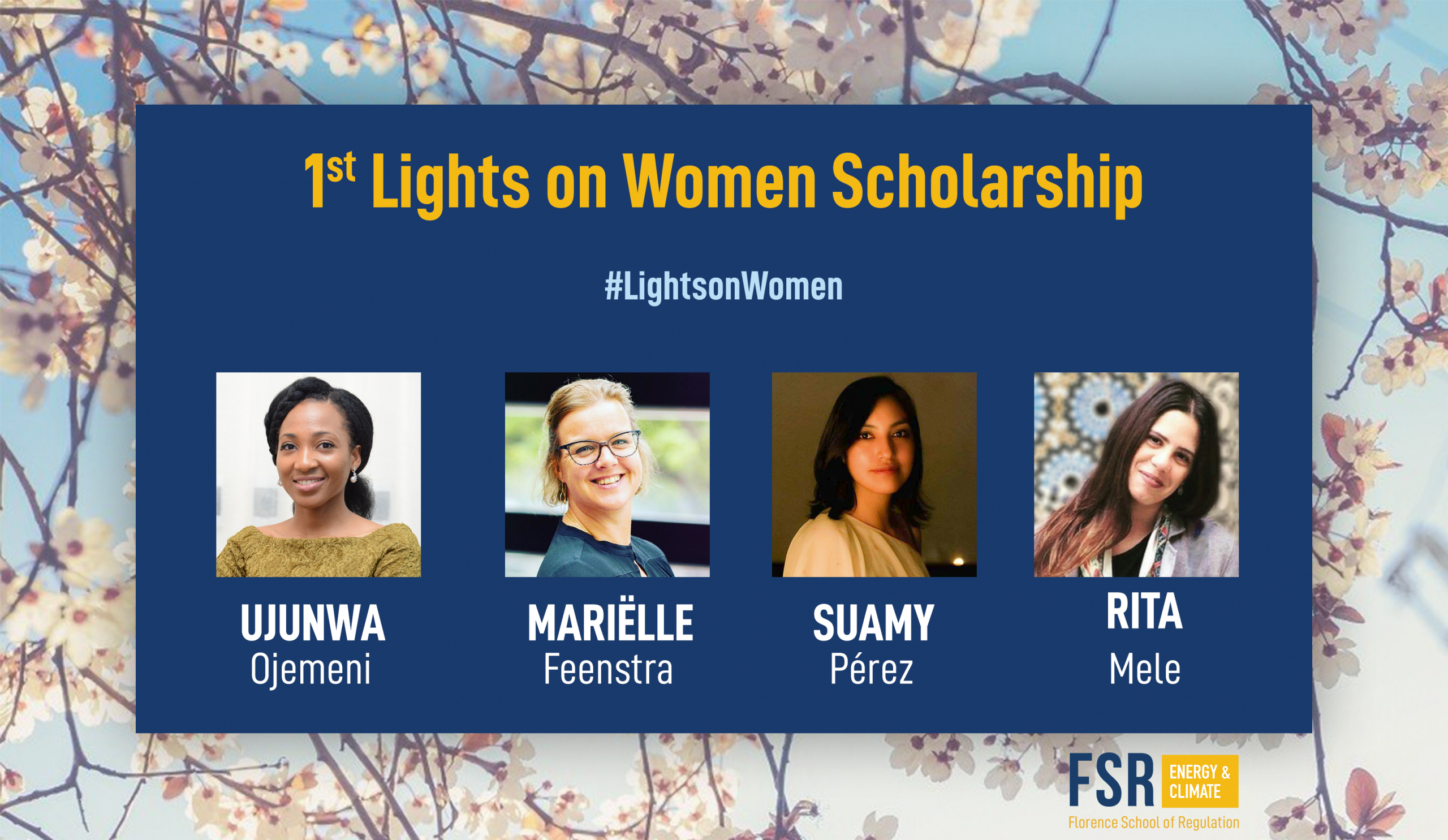
2nd Annual Lights on Women Scholarship Recipients
